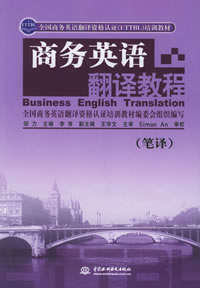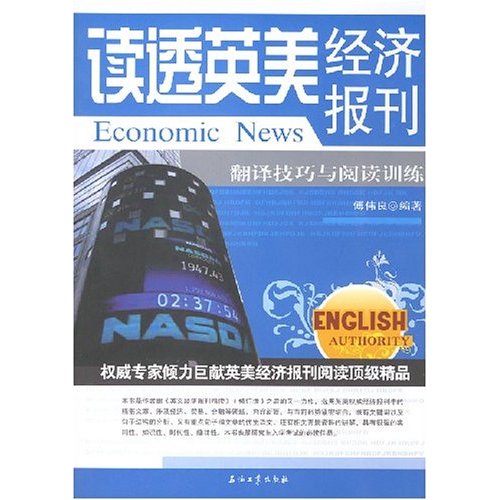专业术语翻译的综合方法:第一部分 An Integrated Approach to the Translation of Special Terms (I)
作者:古龙 2009-07-04




语际翻译公司 转载请注明https://www.scientrans.com
∗本栏目部分文章内容来自互联网,部分已经过本站编辑和整理,如有版权事宜请联系Email/MSN jesczhao@hotmail.com
ment practices which aim to avoid the use of agro-chemical inputs and which minimise damage to the environment and wildlife.
The principles include:
Working with natural systems rather than seeking to dominate them
The encouragement of biological cycles involving micro-organisms, soil flora and fauna, plants and animals
The maintenance of valuable existing landscape features and adequate habitats for the production of wildlife, with particular regard to endangered species
Careful attention to animal welfare considerations
The avoidance of pollution
Consideration for the wider social and ecological impact of the farming system."
Harman, 2005
According to the description of lüse shipin (taken from Lüse Shipin Manufacturing Website, Jixian County, Tanjin, China) and the definition of organic farming (taken from the website of Department for Environment, Food and Rural Affairs, abbreviated as DEFRA, UK), Harman thinks that lüse shipin is identical to organic food. Actually, the above two quotations cannot even be compared: the first one is about the requirement for the use of fertilizers in the production of lüse shipin, while the second one is about organic farming. The comparison itself is problematic. On the other hand, New Age Chinese-English Dictionary (2005), a bilingual dictionary compiled by Chinese scholars, directly gives green food as the English equivalent for lüse shipin. Facing such a situation, the translator could resort to the basic terminological knowledge mentioned in Section 2.1 to analyze the appropriateness of the two different understandings of lüse shipin.
First, we can examine the formation of lüse shipin in the Chinese context. On December 18, 1991, the State Council, People's Republic of China gave a reply to the request from Department of Agriculture on the situation and problems of developing lüse shipin, in which the State Council pointed out: "The development of lüse shipin (unpolluted food) has a far-reaching influence and real significance in protecting the environment, improving the quality of agricultural products, promoting the development of the food industry, enhancing people's health, and increasing the export volume of agricultural products to earn foreign currency. This is a new task, and our country is just at the beginning stage. Effective measures must be taken to further this initial task, and all departments concerned must give their full support. (Accessed online: https://www.greenfood.org.cn/lsspfg/pifu.htm <January 7, 2007>) After more than ten years of development, lüse shipin now has a complete set of standards (cf: https://www.greenfood.org.cn/lsspbzh/wen1/yj05.mht). Therefore, "the standards of lüse shipin are based on China's own standards with a reference to advanced international standards. Chinese enterprises, by adopting the standards of lüse shipin, can use technical innovation effectively, improve quality control in production and promote the level of management and performance of their staff. The standards of lüse shipin also provide technical support for the unconditional exchange with sustainable food and organic food after China's entry into the WTO. It creates a favorable condition for the self-protection and independent development of our agriculture, especially ecological and sustainable agriculture in the process of opening up to the outside world." ("A general introduction to the standards of lüse shipin," accessed online: https://www.greenfood.org.cn/lsspbzh/lsspbzh.htm <January 6, 2007> ). Therefore, "lüse shipin refer to those agricultural and processed foods which are produced in a sound environment and under stipulated technical standards. Their quality is under control during the whole process of production, so they are without pollution, of proven quality and provided with a special logo to designate their quality. " (Conceptual features, from the official website of the Chinese Green Food Development Center, accessed online: https://www.greenfood.org.cn/sites/MainSite/List_2_2444.html <February 20, 2007>)
In contrast, organic food is defined as the following:
Organic f
- 评论
- seme:文章内容文章内容文章内容文章内容文章内容文章内容文章内容文章内容文章内容 章内容文章内容文章内容文章内容文章内容
- seme:文章内容文章内容文章内容文章内容文章内容文章内容文章内容文章内容文章内容 章内容文章内容文章内容文章内容文章内容

- 科技术语翻译技巧
2009-6-6 23:59:54 - 随着社会的进步和科技的发展,新的发明创造不断涌现,随之也就出现了描述这些事物的新术语。在科技英语翻译中,我们常常碰到如何把这类术语译成适当的汉语的问题。通常,有以下约定俗成的...
- 专业术语翻译的综合方法:第二部分 An In…
2009-6-10 12:49:34 - If a producer wishes to have his products certified as organic food, they must conform t...
期刊征稿
- 第四届IEEE生物信息与生…
2009-6-30 19:42:01 - 基本信息 主办单位: 四川大学,IEEE生物医学工程协会(EMBS) 承办单位 开始日期 2010/06/18 结束日期 截稿日期 2009/1...
- 第九届全国光电技术学术…
2009-6-30 19:35:58 - 基本信息主办单位: 中国宇航学会光电技术专业委员会承办单位 开始日期 2009/11/01结束日期 截稿日期 2009...
















